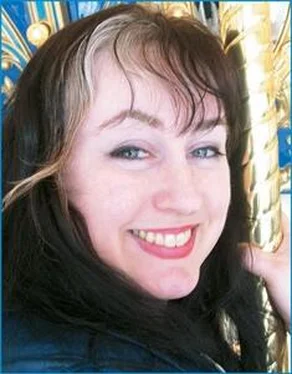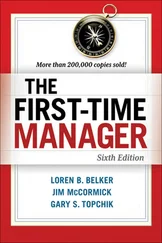The girl breathed in. She sat back up, clearly exhausted.
With shaking hands, I wrapped various treatments for the girl to take with her—salves and teas, special incense and potion—as Mathena helped the girl back into her dress. My shock shifted to anger, sorrow. Teresa’s child would be born in the palace, become a prince or princess, have everything in the world laid out for it, while my own son would have nothing at all.
Mathena wove protection spells for the girl as she left, to protect her from bandits if not from the disease.
“Do you really believe what you said?” I asked, after the girl disappeared from sight. “That it is a good sign?” My voice was hurt, accusing.
“No,” she said, giving me a surprised look. “Of course not.”
I nodded, blinking back tears.
“Rapunzel,” Mathena said, sitting next to me. “You must forget him. For now.”
The way she was watching me scared me. I could feel myself weaken, feel her magic at work. She was trying to make me tired and relaxed enough that I might not care what she did, or might find it easier to listen to her than to my own heart. I blinked, to stop it.
“I have forgotten,” I lied.
She sighed, not even bothering to acknowledge my statement. “It is the duty of his wife, to bear him children.” She hesitated, put her hand on my arm soothingly. “Not yours. It’s still not too late to be rid of it.”
“Of what?”
She gestured to my belly. “It’s more difficult now, but possible.”
“No,” I said, gaping at her. How could she suggest such a thing?
“You are destined for great things, Rapunzel,” she said. “You’ve become a powerful practitioner, and your beauty is a gift. A great gift that gives you strength and increases your magic. You’ll have many more gifts in this world. A child will only hinder you.”
“Mathena! You’re speaking about my son.”
“In the world, he’ll be a bastard. The queen’s child will have everything your own son will be denied. Don’t you want those things?”
She continued to watch me in that same intent way.
Her words confused me. “Yes, but . . . what can I do? I cannot have those things. It’s too late.”
“Be patient,” she said. “Haven’t I taught you that the world can change in an instant?”
Over the rest of that winter, darkness seemed to envelop us, so thick it was like a physical thing. The rush of women who came to us slowed down to a faint trickle of the truly desperate. The daylight, when it came, was ghostly, pale. All that mattered was keeping the fire lit, keeping food in our stomachs, making sure the child inside me survived. We spent most of our days with dried herbs spread around us, making potions and poultices for every kind of ailment, ripping pieces of cloth to wrap around particularly potent mixtures.
My hunger did not abate. I wanted to eat everything, to lock myself in the cellar and devour every herb, every vegetable, every dried piece of meat. No matter how much we carried up and roasted in the hearth, it never seemed to be enough to fill me. Mathena even began locking the cellar at night, so that I would not run down in my half sleep and gorge myself.
The days passed slowly. To distract me, Mathena told me stories of the old goddesses—Artemis turning Daphne slowly into a tree, limb by limb, Aphrodite rising from foam and sea, Hera ruling over all of them at the side of her brother Zeus, who was also her husband—and of the days when the queen consulted her on everything from what to eat for breakfast to which of her husband’s advisors would betray him. I loved her stories. Sometimes I would get so lost in them that I’d look down at the cloth and stalks and seeds in my hands and forget what they were, why I was holding them.
At times, when I was restless and burning, I would take to the woods in the pure light of the afternoon with a fur wrap, often just with a bow and arrow, to hunt.
Which was how I found myself outside one afternoon, stalking through the forest with Brune flying above me and my bow at my side, several arrows sticking out of the quiver on my back. I scanned the trees, the ground, but I was distracted, consumed as always by thoughts of what would happen, once I had brought his child into the world.
What I would do then.
And so I didn’t hear the swishing of branches, the light step of hooves, the way I might have normally, and did not sense the stag until it was right there in front of me.
It stood in my path. I stopped, astonished. It stared back at me, and was unlike any deer I’d ever seen. It looked as bewildered as I did, and for a moment we both stood there in the snow, frozen. Antlers twisted from its skull like tree branches, a crown. Its eyes were big and black and round, soft. Beautiful.
I was mesmerized.
And then everything came into focus. I remembered why I was there, and could not believe my good fortune. Hunting was difficult in the winter, even when I was not with child, and at best I would return home with several squirrels or rabbits.
I lifted my bow and aimed.
“Stay,” I whispered.
My heart pounded. I kept my fingers perfectly still.
I released my hand and let the arrow loose. It flew through the air, and those moments seemed to stretch out and become hours, days, until the arrow landed, right in the animal’s throat. I could feel the arrow entering. I heard the wet, hard sound of it breaking the skin, entering blood and bone.
The stag’s eyes never left mine.
It staggered, blinking, and let out a terrible bleat.
And then it turned and ran, and I took off after it, my fur-lined shoes pounding over earth and snow. I raced through the trees, Brune following in the sky, the scent of blood and death and dying all around me.
I was surprised at how much life the animal still had in it, and I was forced to slow down, my body more lumbering than usual. But I was fleet and strong still, a daughter of Artemis, intent on my prey. Already I could taste the meat roasted over the fire.
I ran through leaves and over tree trunks, past the great oak that had been split in a storm, along the river, following the animal’s tracks and blood, the sounds of it stumbling through the wood.
And then I heard it falling, and I raced forward, toward the sound. I pushed through a cluster of trees, and found myself stepping into a small clearing.
The tree branches swayed overhead. Brune landed in one of them, waiting for her reward.
The wounded creature lay there, twisted in the snow, the arrow jutting from its neck straight into the air. I pulled my knife from my boot, ready to slit its throat, and moved forward. The stag shifted its head and looked up at me. I could see its anguish, hear its ragged breath, and then something pulled me up short.
At first I thought I was seeing things. There was a glow around the animal’s body, the way it began to shimmer and shift. The antlers seemed to twist down, melt, just as everything on its body was transforming, like a tree throwing off ice and snow and sprouting green leaves. Its body was shrinking, its fur disappearing, until all that was left was pale skin.
Human skin.
I blinked, disoriented, wondering if I was imagining what was in front of me.
There was a young man lying there now. Naked, wounded, blood streaming from his mouth, my arrow in his neck.
For a moment I stood frozen, and then I ran to his side and collapsed on the ground next to him.
His eyes were now a deep dark green, the color of leaves in summer. I placed my palms on his skin, half expecting him to disappear and for my hands to move right through him. But he was real, solid flesh, still warm. I moved my hands away.
I knew there was magic in the forest, but I had never seen anything like this. His torso and legs were bare and muscled, his sex dangling down between his strong thighs. The only other man I’d seen naked—or even this close—was the prince, and I’d barely looked at his body, not like this, not in the sunlight, stretched out before me.
Читать дальше












